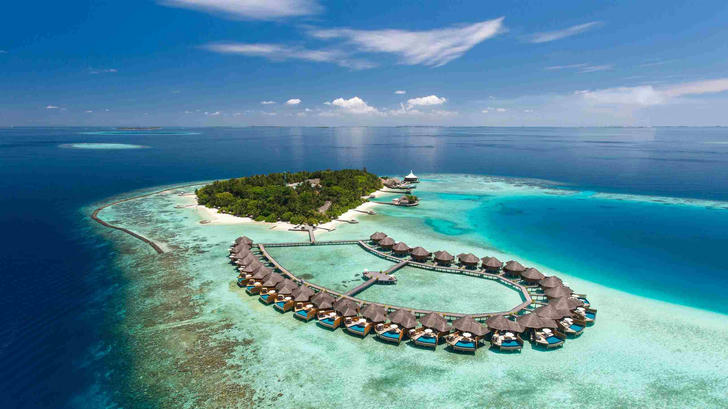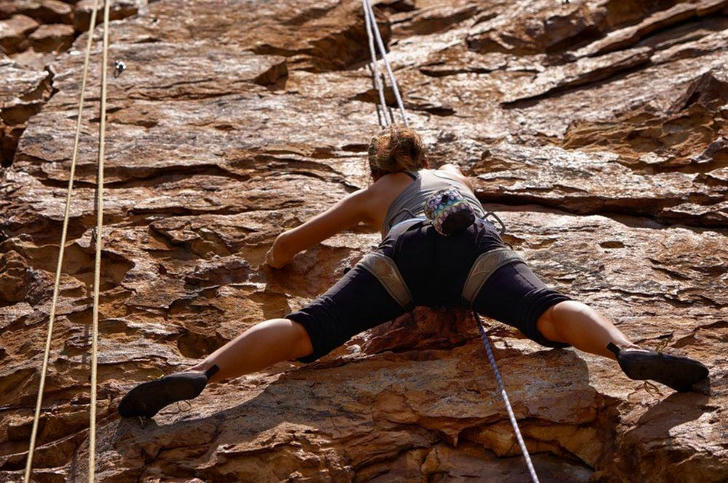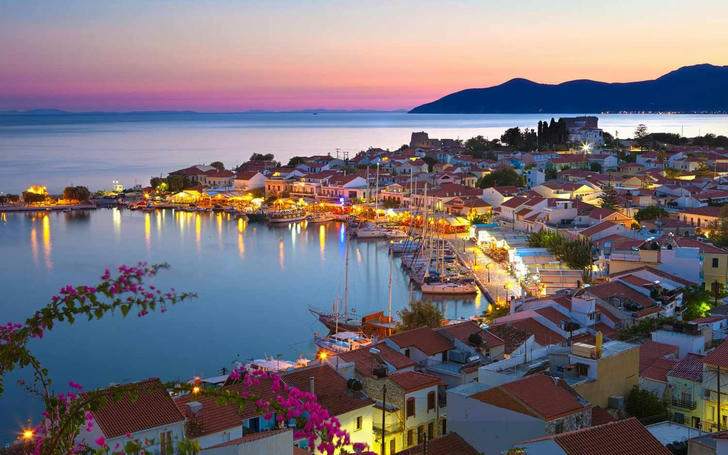Adventure, Relaxation, and Culture: How to Choose the Perfect Vacation Theme
Planning a vacation involves more than just choosing a destination. Deciding on a theme for your trip—whether it’s adventure, relaxation, or cultural exploration—can help shape your experience and ensure that it aligns with your interests and goals. A well-chosen vacation theme allows you to make the most of your time and enjoy activities that bring you joy, renewal, or new perspectives. In this guide, we’ll explore how to select the ideal vacation theme by assessing personal preferences, practical considerations, and available experiences.

1. Identify Your Vacation Goals
The first step to choosing a vacation theme is clarifying what you hope to achieve. Are you looking to escape the stress of everyday life, experience something new and thrilling, or immerse yourself in a different culture? Here’s a closer look at each option:
Adventure: For thrill-seekers, an adventure-themed vacation offers excitement, outdoor activities, and often a chance to test personal limits. This theme is ideal for those who enjoy hiking, extreme sports, or exploring the natural world.
Relaxation: If you’re in need of rejuvenation, a relaxation-focused vacation allows you to recharge in a tranquil setting. Relaxation vacations often involve beach resorts, spa retreats, and destinations known for their peaceful atmospheres.
Culture: If you’re passionate about history, arts, and diverse ways of life, a culture-themed vacation will immerse you in the traditions, architecture, and cuisine of a specific location. Museums, historical sites, and local events are often highlights of this type of trip.
Actionable Step: Make a list of your top vacation goals. Think about what kind of experiences would feel most fulfilling or enjoyable based on recent interests and needs. This reflection helps narrow down the theme that best suits your current desires.
2. Assess Your Travel Style and PreferencesConsider your personal travel style to help determine your ideal vacation theme. For example, do you prefer structured itineraries or free exploration? Do you travel solo, with friends, or as a family? Travel style can greatly influence the best theme for your trip:
Solo Travelers: For solo adventurers, a mix of adventure and cultural experiences can offer a fulfilling combination of independence and discovery. Both themes allow flexibility and opportunities to connect with local communities.
Couples: Many couples enjoy relaxation-themed vacations, as they provide a quiet, romantic environment. Alternatively, a shared cultural or adventure experience can foster bonding through new discoveries or challenges.
Families: Families often seek destinations that balance relaxation with light adventure. Many locations cater to family-friendly activities that keep all ages engaged while providing a space for relaxation.
Example: A solo traveler might thrive on a backpacking adventure through South America, exploring cities, hiking mountains, and tasting local food. In contrast, a family may enjoy a relaxing beach resort with occasional excursions like snorkeling or sightseeing.

3. Match Your Theme to the Destination
Each vacation theme lends itself to certain types of destinations. Once you have chosen a theme, you can shortlist destinations that cater to it:
Adventure Destinations: Adventure vacations thrive in areas known for natural beauty and outdoor activities. The Grand Canyon, the Alps, New Zealand, and Costa Rica are ideal spots offering hiking, kayaking, zip-lining, and more.
Relaxation Destinations: For relaxation, look for destinations with resorts, spas, and beautiful scenery. The Maldives, Bali, the Greek Islands, and Sedona in the U.S. are famous for their calm atmospheres and wellness-oriented amenities.
Cultural Destinations: Culture seekers will enjoy cities with rich histories and vibrant traditions. Paris, Kyoto, Istanbul, and Mexico City are perfect choices for immersing yourself in art, history, and local customs.
Actionable Step: Research destinations that match your theme and create a shortlist of places that offer suitable activities and accommodations. Look for guides and reviews to get a better sense of what each location has to offer for your chosen theme.
4. Plan Activities That Align with Your Theme
After selecting a destination, outline a few activities that reinforce your vacation theme. Having a theme-based itinerary ensures that each day of your vacation contributes to your overall goals.
Adventure Itinerary Suggestions:
Day Hikes or Multi-Day Treks: Explore famous trails, like the Inca Trail in Peru or the Appalachian Trail in the U.S.
Outdoor Sports: Plan activities such as rafting, skiing, surfing, or rock climbing. Make reservations in advance, as these activities can book up quickly.
Local Nature Tours: Guided tours of national parks or unique ecosystems are ideal for learning about and exploring the area’s natural landscape.

Relaxation Itinerary Suggestions: Spa Days: Many relaxation resorts offer full-day spa packages, including massages, facials, and meditation classes. Book treatments ahead of time for an uninterrupted experience.
Leisure Activities: Include time for reading, yoga, or beach lounging. Many destinations also offer wellness classes and workshops, adding depth to your relaxation time.
Local Gourmet Experiences: Fine dining or cooking classes can be relaxing and enjoyable. Research local dining spots and make a few reservations.
Cultural Itinerary Suggestions:
Museum Visits: Start your day with a visit to a local museum to understand the history and art of the region.
Guided Historical Tours: Consider a city or neighborhood tour led by a local expert. Many cities offer themed tours that explore specific eras or aspects of local history.
Cultural Festivals: If possible, plan your trip around a local festival or event. Participating in these can provide deeper cultural immersion.
Example: A culture-focused trip to Tokyo might include visits to ancient temples, sushi-making workshops, and an evening tour of the city’s neon-lit districts. Meanwhile, an adventure trip to Costa Rica could involve white-water rafting, volcano hikes, and snorkeling excursions.
5. Consider Seasonal Factors and Timing
Certain themes work better during specific seasons, and timing can impact your experience. For example:
Adventure: Choose a season that allows for safe and enjoyable outdoor activities. Skiing trips are best in winter, while hiking and water sports may be more pleasant in summer.
Relaxation: Consider off-peak times for relaxation vacations, as resorts are often quieter and rates lower. The shoulder seasons (just before or after peak travel times) provide mild weather and fewer crowds.
Culture: Some cities have peak cultural seasons with festivals and events. Planning your trip to coincide with these can add a special dimension to your vacation.
Actionable Step: Check the seasonal weather, peak tourist times, and local events for your destination. Sites like the National Weather Service or local tourism boards can provide information on climate and travel tips.
6. Stay Flexible and Open to New Experiences
Finally, even with a well-planned theme, flexibility is key. Be open to adapting your itinerary based on weather, local recommendations, or unexpected discoveries. This approach can lead to unexpected adventures or restful moments that enrich your trip.

Tips for Staying Flexible:
Embrace Local Recommendations: Ask locals for their favorite places or activities. Often, they can suggest hidden gems or off-the-beaten-path experiences that fit your theme.
Leave Room for Spontaneity: Don’t overbook your schedule. Keep some time open for activities you might discover upon arrival, allowing for a balance of planned experiences and serendipity.
Prepare for Plan B: Have alternative activities in mind, especially for outdoor adventures that may be affected by weather. Research indoor attractions like museums, cafes, or galleries in case plans need to change.
Conclusion
Choosing the perfect vacation theme—whether it’s adventure, relaxation, or cultural exploration—can turn your trip into a deeply rewarding experience that aligns with your personal goals and travel style. By setting clear intentions, matching your theme to a destination, planning thematic activities, and staying open to new possibilities, you can create a fulfilling and memorable vacation. Ultimately, a well-thought-out vacation theme enhances not only your enjoyment but also strengthens the bonds you share with travel companions, helping you return home with fresh perspectives and lasting memories.
